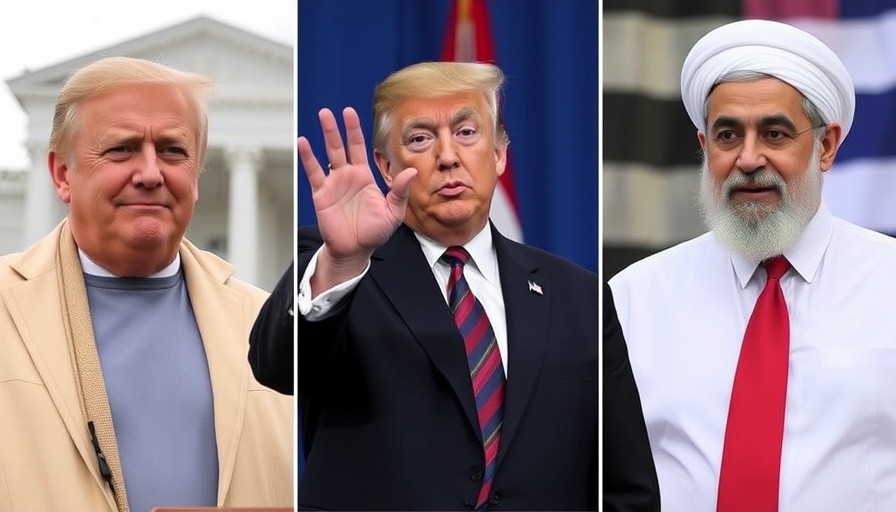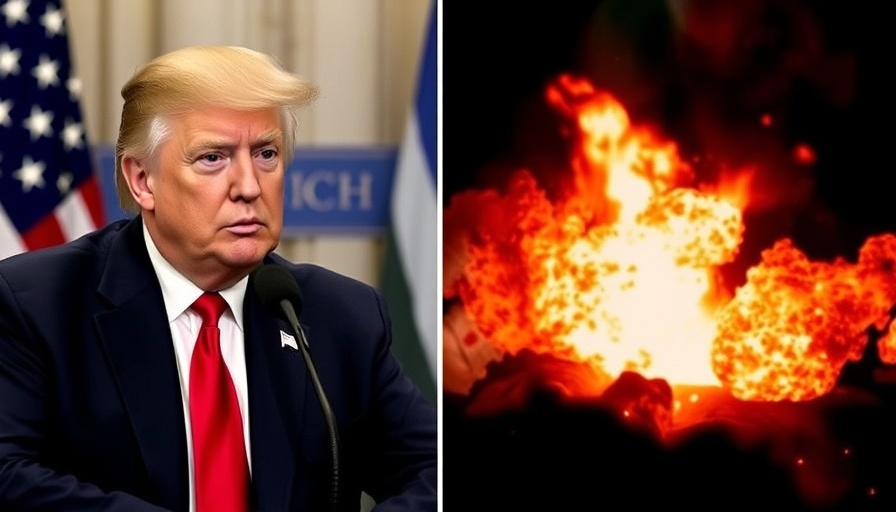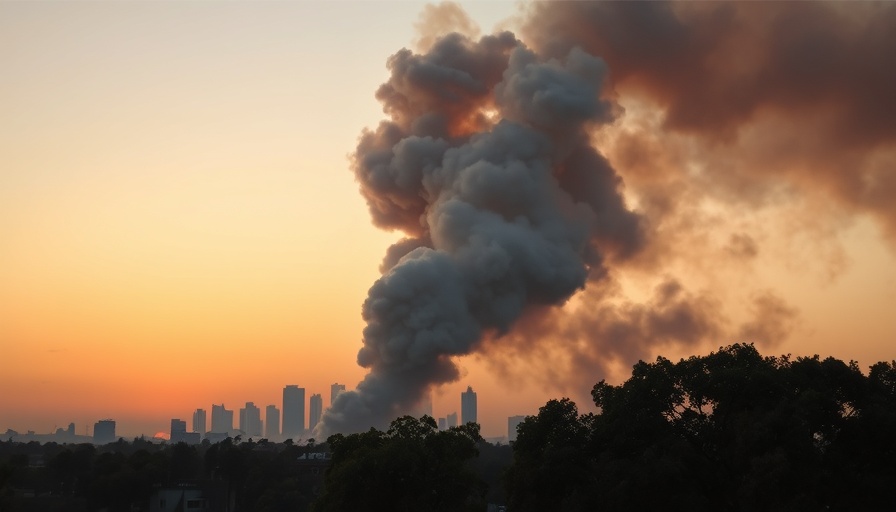
Trump's Military Actions: A Time of Decision
In the backdrop of escalating tensions with Iran, former President Donald Trump is contemplating military action that has left both lawmakers and citizens deeply concerned. His remarks have ignited fears of potential retaliation amid a complex web of international relations and legal ramifications relating to his past conduct in office.
Understanding the Current Context of U.S.-Iran Relations
Iran's ongoing nuclear ambitions have been a focal point of international tensions for over a decade. Trump has consistently maintained a hardline stance, often asserting that military intervention may be necessary. His comments fuel speculation not only about possible military strikes but also about the broader implications of these actions on U.S. relationships abroad, particularly with allies affected by escalation in the Middle East.
The Legal Quandary — What Does It Mean for Trump?
Amidst these military considerations, Trump faces significant legal challenges. With multiple investigations into his conduct during his presidency, any decision to engage militarily could be seen through the lens of legal scrutiny. Critics argue that military action could be a calculated move to distract from the mounting legal pressures, raising questions about the motivations behind such decisions.
Historical Context: Echoes of the Past
Historically, U.S. presidents have wrestled with similar dilemmas regarding military action in the Middle East. For instance, President Obama’s involvement in the Syrian crisis and Trump's own airstrikes in 2017 aimed at deterring the Assad regime underscore the challenging narrative of intervention versus isolationism. The outcomes have often been mixed, highlighting the unpredictable nature of such military engagements.
Potential Military Targets — What's on the Table?
In the event of military action, targets could potentially include Iran's key nuclear facilities such as the Fordow site, which has been identified as a significant focal point for uranium enrichment. Military experts stress the strategic importance of these sites, underscoring that a well-planned military response could severely impact Iran's nuclear capabilities.
Global Reactions: Allies and Adversaries
Responses to Trump's potential military actions are divided along political lines. Allies in Europe have expressed apprehension about the consequences of further escalation, fearing that military strikes could undermine diplomatic efforts to negotiate with Iran. On the other hand, hawks within the U.S. view military action as a necessary measure against perceived threats.
The Uncertain Future — What Lies Ahead?
As tensions rise, analysts warn of the possibility for long-term U.S. military entanglement in the Middle East. The region remains a volatile landscape where an action taken today can have unforeseen ramifications tomorrow. Future predictions suggest that without a clear and well-defined strategy, American interests could be placed on precarious ground, entangling the nation in a protracted conflict.
Public Sentiment: Concerns and Opinions
The general sentiment among the American public reflects concern and uncertainty. Many citizens are wary of entering another potential conflict, particularly given the long-standing military engagements in Iraq and Afghanistan. Polls show a divided electorate, with some supporting strong military responses while others advocate for diplomatic avenues. This public opinion plays a significant role in guiding political discourse as leaders navigate these hostile waters.
Conclusion: Navigating a Complex Landscape
As Trump deliberates his options, the intersection of military strategy and legal considerations continues to create a challenging narrative. His actions not only impact international relations but could also reverberate through American domestic politics. Keeping informed about these developments is vital as decisions made today could shape the geopolitical landscape for years to come.
 Add Row
Add Row  Add
Add 




 Add Row
Add Row  Add
Add 

Write A Comment